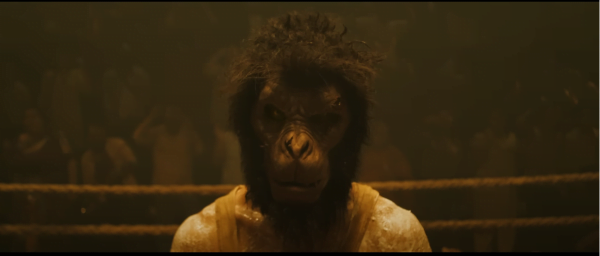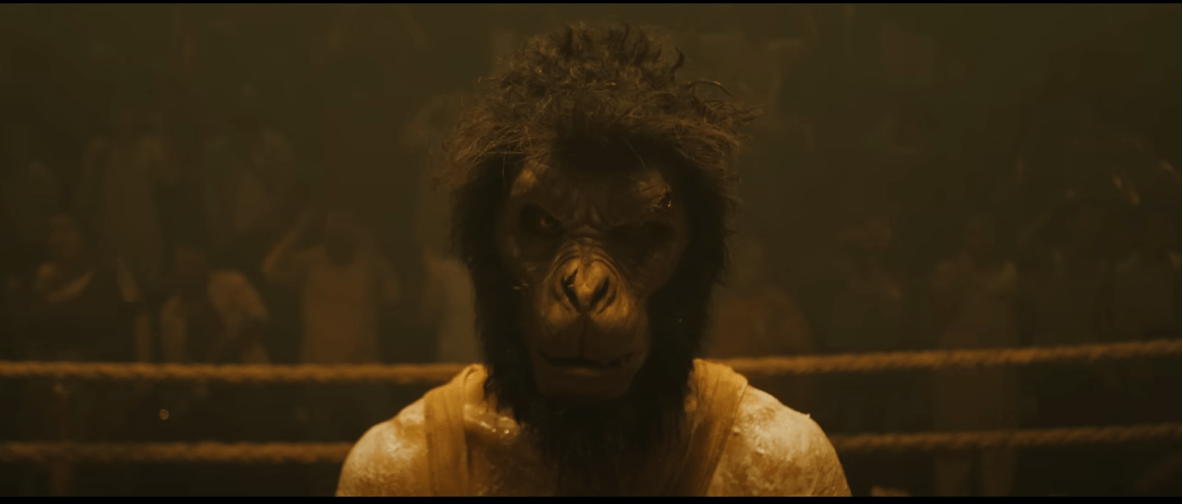Monkey Man
In this violent, cathartic revenge thriller, set against a backdrop of gross inequality and corruption, director and actor Dev Patel delivers more than your average action movie.
Speaking to the BBC, Patel stated that he “wanted to create a story about the underdogs challenging the untouchable status quo”. His aim is to cast a critical light on the corruption of the police, politicians, and religion (i.e. the state).

The popularity of this film, and the hype surrounding it, certainly reflects the fact that workers and youth wouldn’t mind giving some individuals in the establishment a quick one-two to the chin.
This ‘challenge against the status quo’ takes the form of Kid, a man living in the slums, hell-bent on exacting revenge on those who have wronged him.
Scratching beneath the radical veneer of the film, its political message falls flat in places.
The focus is on Kid’s campaign of individual terror. The role that workers and youth can play in overthrowing the establishment is therefore neglected.
When the masses appear in the movie, it is either as bloodthirsty gamblers, or as a reactionary mass under the spell of sectarian politics. Kid is restricted to taking on the whole establishment with methods that amount to beheading a many headed-hydra.
Patel’s debut directorial feature is definitely entertaining. And there is some cathartic value in watching Kid carry out his rampage against the rich.
Yet the reality is that while this or that vile figure can be removed, as long as the social system that created them remains, the powerful elites will always be able to spawn any number of replacements.
If you’re looking for something that demonstrates how to tear down the whole rotten establishment and their system for good, you might want to follow this movie with a Bolshevik chaser – and join the RCP!
Wade Tucker, Liverpool Communists
‘Monkey Man’ is currently showing in cinemas across the country.
Zero Fucks Given
This film’s provocative title could equally refer to the flippant lifestyle of its flight-attendant protagonist Cassandre, and to her Ryanair-style employer, for whom bureaucratic indifference is the modus operandi.

Capitalists often defend zero-hours contracts on the basis that they offer workers cherished flexibility – as if such bottom-of-the-ladder jobs really offer workers freedom.
This opinion (or illusion) seems to be shared by Cassandre. Near the film’s beginning she is obstructed on her way to work by representatives of a strike at her employer, Wing Air. Pressed by the union members to realise how bad her conditions are, and to think of her future, she replies: “I don’t even know if I will be alive tomorrow.”
Perhaps she means this in a life-affirming, ‘live in the moment’ way. But it clearly also implies a dark side to her hedonistic lifestyle. As a flight-attendant, Cassandre lives rootlessly: she sleeps in generic hotels; hooks up with random men from dating apps; gets drunk and high at mediocre-looking nightclubs.
She is depicted as having fun and meeting people from all over the world. But the conversations appear mostly awkward and banal. We learn that she has a father and sister in Belgium. But spurns them over Christmas in favour of more shifts.
In fact, she has used her job as an excuse to escape family tragedy, the reality of which is forced on her not by her father, but by the fact she must tell a call-centre worker her mother is dead in order to change a contract.
When she is forced to embark on training for a promotion with Wing Air, she is told by the instructor to “leave her emotions behind”. We are treated to the blackly comic awkwardness of close-ups of trainees as they show their ability to smile (in reality grimace) non-stop for 60 seconds.
Cassandre is even reprimanded for showing genuine humanity to passengers (because this involves personal initiative beyond the formal procedures), and for ‘rating’ her fellow workers well even when they fail to sell much perfume. The stiff, bureaucratic tone of her boss is spot on for this environment.
The point is clear: this ‘flexible’ and ‘empowering’ job is deeply alienating.
The film is not depressing, however. Cassandre’s eventual visit to her father and sister reveals her home life to be warm and loving.
It would be easy to conclude from this contrast between her local ‘roots’ and her ‘rootless’ international job, that this is some sort of ‘anti-globalist’ reactionary film.
But the striking workers she meets earlier prove this is not the case. They explain that their strike is global, and they make the case that they can only win on a global level.
That is to say: this is an anti-capitalist, not an anti-globalist, film.
Daniel Morley, Hackney Communists
‘Zero Fucks Given’ is currently available to stream via Mubi






